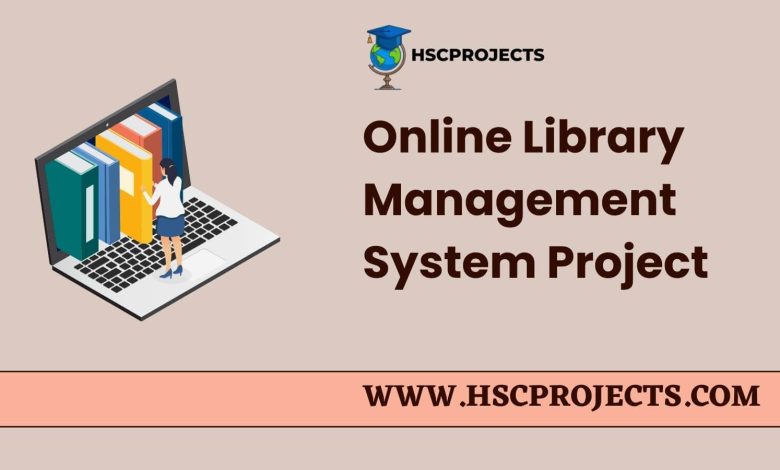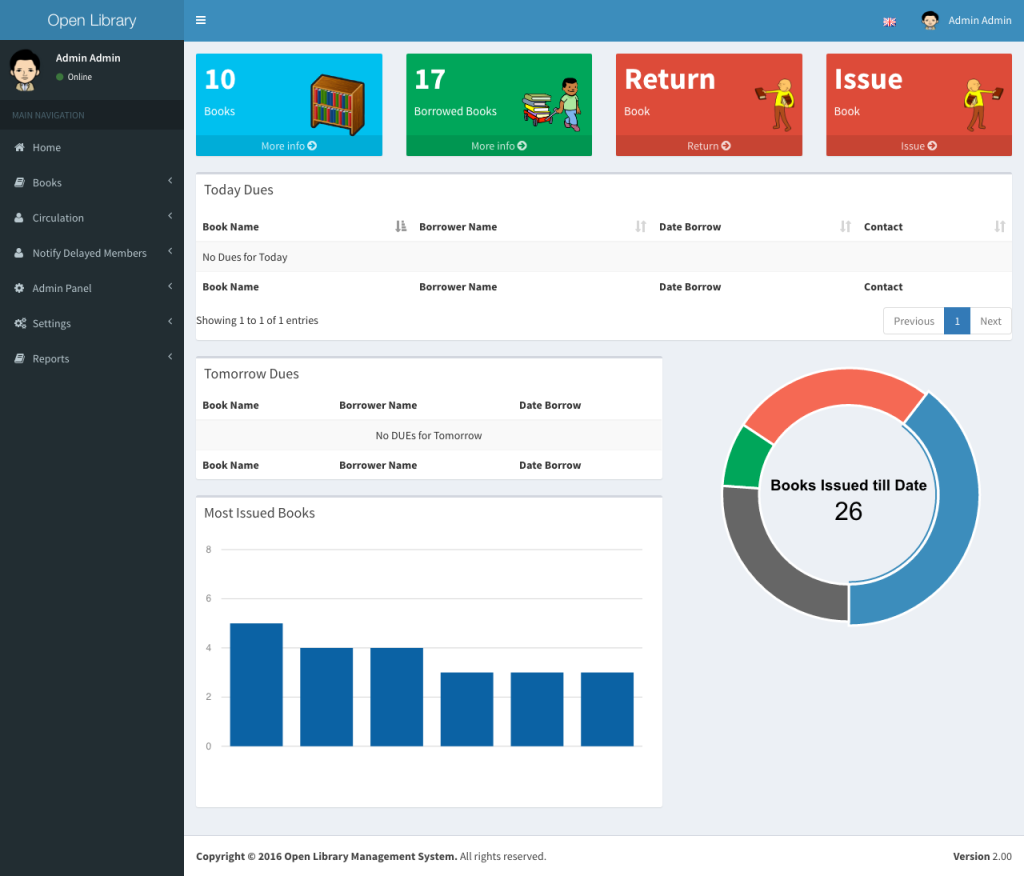
Online Library Management System Project
Introduction
The digital age has revolutionized the way we manage resources, and libraries are no exception. An online library management system project not only streamlines the process of cataloging and issuing books but also provides a platform for students and administrators to interact in a more efficient manner. This article delves into the various modules, advantages, and even the limitations of implementing a library management system.

Modules in a Library Management System
- Admin Login:
- The admin has the authority to manage the entire system. They can add or remove e-books, update book details, and manage user accounts.
- User Login:
- Students must register to create an account. Post-registration, they can log in using their mobile number and email ID to access the library’s resources.
- Add and Update Books:
- The admin can effortlessly add new arrivals and update existing book details, making the system dynamic and up-to-date.
- Search Option:
- Both the admin and students can search for books by entering the book’s name, author, or ISBN number.
- View and Place Orders:
- Admin can view orders placed by students, while students can place orders for books online. The system automatically updates the book’s availability.
- Fine Calculation:
- The system automatically calculates fines based on the issue and expiry dates, thereby eliminating manual errors.
Advantages of Library Management System
- Paperless Management:
- The system eliminates the need for paperwork, thereby saving resources and time.
- Real-time Updates:
- Admin can keep the system updated with new book arrivals and their availability.
- User-Friendly Interface:
- The system is designed to be intuitive, making it easy for both students and administrators to navigate.
Limitations
- Lack of Human Interaction:
- The system doesn’t provide a platform for users to make inquiries or seek additional help, which could be a limitation for some users.
Conclusion
Implementing an online library management system project can significantly improve the efficiency of library operations, from book management to fine calculation. While it has its limitations, such as the lack of human interaction, the advantages far outweigh the disadvantages.
Sample Code
# Initialize book database and user database
book_db = {}
user_db = {}
# Function to add book
def add_book(book_id, book_name):
book_db[book_id] = book_name
# Function to search book
def search_book(book_name):
for id, name in book_db.items():
if name == book_name:
return f"Book found with ID: {id}"
return "Book not found"
# Function to register user
def register_user(user_id, user_name):
user_db[user_id] = user_name
# Function to view all books
def view_books():
return book_db
# Function to view all users
def view_users():
return user_db
# Admin adding books
add_book(1, "Python Programming")
add_book(2, "Data Structures")
add_book(3, "Web Development")
# User registration
register_user(1, "Alice")
register_user(2, "Bob")
# Search for a book
print(search_book("Python Programming")) # Should return "Book found with ID: 1"
print(search_book("Unknown Book")) # Should return "Book not found"
# View all books
print(view_books()) # Should return the book database
# View all users
print(view_users()) # Should return the user database
In order to download the PDF, You must follow on Youtube. Once done, Click on Submit
Follow On YoutubeSubscribed? Click on Confirm
Download Online Library Management System Project PDF






